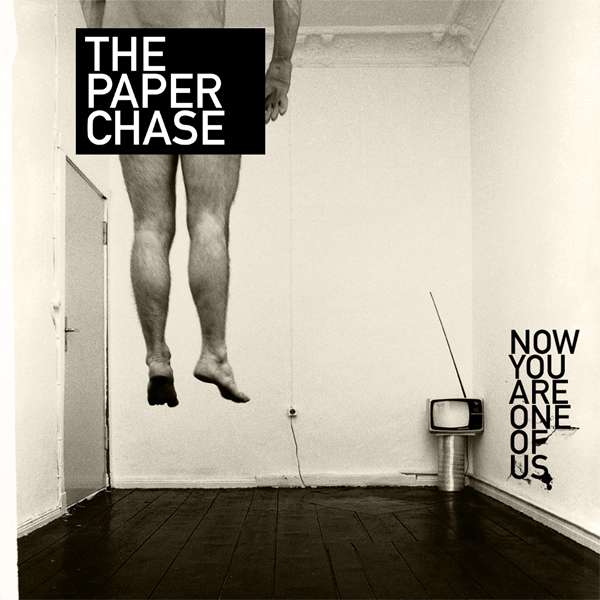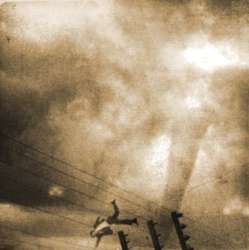On their latest effort, Now You are One of Us, The Paper Chase's Congleton tells a story about a family trapped inside a ghostly house that is literally out to get them. And in the end they ultimately become one of them. Southern Records describes the album as "the sonic equivalent to George A. Romero's classic zombie films." That's not too far fetched seeing as if you were to rid the album of the all the pop hooks, all you'd have left is one creepy and slightly disturbing minimal audio sample reminiscent of a horror classic.
You will never find a single song with a pause of silence; there is always something there: a piano in the background, doors knocking, banging, and creaking, or a woman explaining "I was getting off the ninth floor elevator, and I was walking down the hall and I heard footsteps behind me. I turned around to see if anybody was following me and there was nobody there."
The record begins with a man on the phone, explaining to the operator that he doesn't have a lot of time. As he becomes frantic he doesn't know how to explain what they are, but he knows they're not human. The call ends short with a nervous cry out, "The bastards, they're coming!" "We Know Where You Sleep" follows the introduction into this horror story, the listener is slowly surrounded by a gloomy choir, piano, and strings, but by the near end of the song Congleton is on a full out sonic onslaught. His guitar is stifling, piercing and seems blindly improvised. While the rhythm section and piano work to hold it together, the rest of the music and lyrics are ghastly. The strings are distracting, but the songs are sometimes accompanied by melodies, such as in "You'll Never Take Me Alive."
Congleton's vocals are always on the verge of desperation, as if clinging on for dear life. He has a very distinct voice, and presents himself like a maniacal southern preacher. It's a nervous calm, but as he gets into his story, he gets excited and enthralled into what he's doing. At live shows he is just as animated. He expresses his antics on stage, pretending to stab and strangle the audience with his hands as he swings back and forth like he's going to snap. The orchestral aspects you'll find on the albums are kind of lost in the music at their live shows, but you'll still find eerie samples from Kirkpatrick's keys present.
If you were seeking something of the unexpected like the transition from Hide the Kitchen Knives to God Bless Your Black Heart, you might have been a little disappointed. If you look past that, you'll find an interesting concept, and fitting story of one that relates to the familiar fear inducing The Paper Chase: saving one's own identity and questioning human existence. It might not be your favorite, but it's undeniably good.

